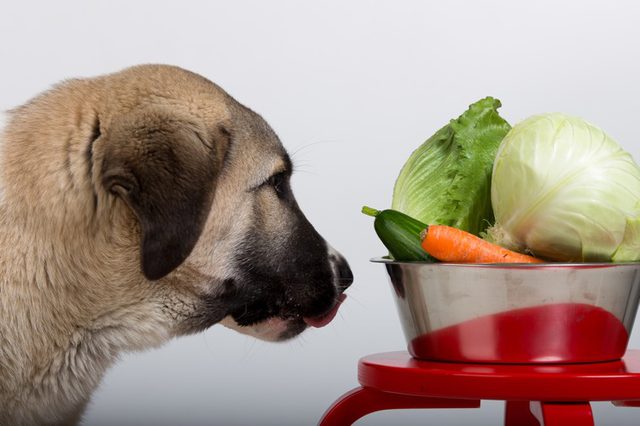Can my dog eat Nopales? 
Connect with a verified veterinarian in minutes. Licensed vets are available 24/7 to answer your questions. No need to worry about your furry family member.
Nopales are a vegetable made from the pads of prickly pear cacti. The pads are usually green, but can also be purple, and are about the size of your hand. The taste is said to be something similar to green peppers, with a green bean texture.
Nopales are used as a food source in Mexico and Central America, but are also popular in the Southwest U.S. You can find nopales in Arizona, New Mexico, and Nevada—they’re often served at Mexican restaurants.
These popular veggies can be added to stir fries, eggs, pickled or canned—the sky’s the limit to how they can be used. Nopales are rich source of vitamins including Vitamin A, B6, C, K, and include minerals such as potassium, calcium and more.
Can my Dog Eat Nopales?
Generally, they’re not recommended for your fur baby. Can my puppy eat nopales? Again, they’re not usually recommended for puppies, either.
With that said, we couldn’t find medical information that confirms prickly pear fruit is toxic to dogs; however, it might be a good idea to ask your vet if these are good for your pup.
What would happen if my dog ate nopales? If he only had a small amount of nopales, he would probably be OK. Dogs can eat a small amount of nopales if they’ve been cooked first. Cooking removes the oxalic acid that can cause a dog to develop digestive issues.
What’s in Nopales That Can Make a Dog Sick?
Another substance found in nopales is saponin. Saponin is a substance that’s known to cause digestive tract issues in dogs. While a dog would have to eat a lot of nopales to get sick, these are still not considered safe for our canine friends to eat.
What’s more, these contain a high amount of fiber that can cause stomach and digestive issues in dogs.

Review symptoms, medications & behavior to keep your pets healthy with a Vet Online in just minutes.
Ask a Vet Live NowCan a Dog Eat Raw Nopales?
Raw nopales can cause a dog to get sick. They contain oxalic acid and have sharp spines that can cut a dog’s mouth, lips, and tongue. Moreover, oxalic acid in large amounts can cause a dog to develop tremors, kidney failure, and even death. Most dogs don’t find nopales tasty.
Dogs who have eaten nopales in large amounts over the years can develop other issues, too. They may develop kidney and bladder stones due to the oxalic acid contained in the nopales.
Your fur baby could eat one small bit of nopales safely, but not more.
Symptoms of Nopales Ingestion in Dogs
A dog who has eaten too many nopales may experience these symptoms:
- Diarrhea
- Vomiting
- Constipation
- Nausea
- Dizziness
- Tremors
- And more
Safe Alternative Snacks
There are many healthy, safe choices of snacks to give your fur baby. For example, most dogs love apples. These are a great snack for your dog, but be sure to remove the skin and seeds first. Another great snack is bananas. These fruits have some sugar (fructose), and plenty of vitamins and minerals that are highly beneficial for your dog.
You can also give your dog carrots, green beans, and other dog-safe vegetables in place of nopales.
However, if he ate a larger amount, he could develop tummy trouble and/or diarrhea. Again, it’s a good idea to check with your vet to see if nopales are safe for your precious pup!
Connect with a verified veterinarian in minutes. Licensed vets are available 24/7 to answer your questions. No need to worry about your furry family member.

Julie
Julie is a graduate of the University of North Carolina, Wilmington, where she studied Animal science. Though contrary to the opinion of her parents she was meant to study pharmacy, but she was in love with animals especially cats. Julie currently works in an animal research institute (NGO) in California and loves spending quality time with her little cat. She has the passion for making research about animals, how they survive, their way of life among others and publishes it. Julie is also happily married with two kids.
Review symptoms, medications & behavior to keep your pets healthy with a Vet Online in just minutes.
Ask a Vet Live Now

